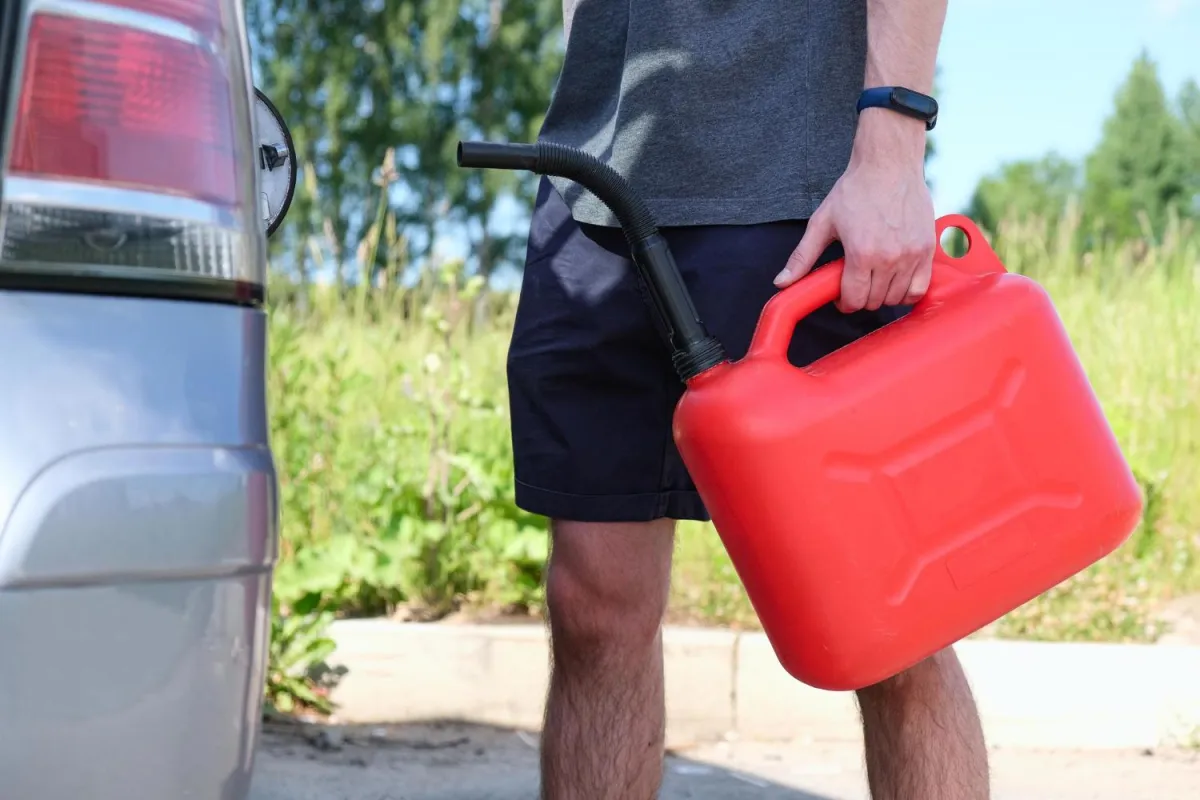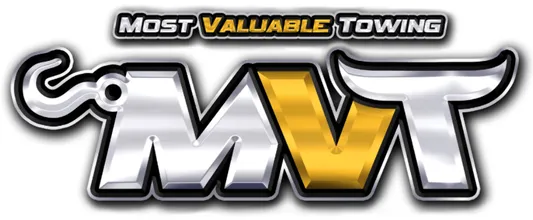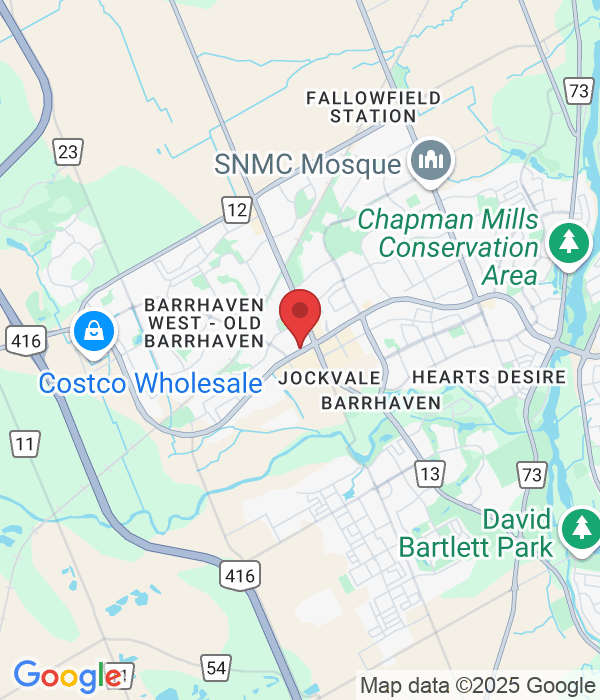Blog

What To Do if You Run Out of Fuel on a Road Trip
Running out of fuel on a road trip isn’t something anyone plans for, yet it can happen to even the most prepared drivers. You're on a scenic drive through Ottawa, enjoying the beautiful sights when suddenly, the car sputters, and you realize the fuel gauge is sitting firmly on empty. It’s an unsettling situation, but there's no need to panic. The important thing is to stay calm and know what actions to take next.
Understanding the steps to handle this scenario can transform a potential day-ruiner into a manageable situation. With the right approach, you can keep yourself safe and get back on track without too much hassle. Let's explore what you can do to be prepared and how to handle running out of fuel while ensuring your safety and peace of mind.
Pre-Trip Preparations
Preparation is key to avoiding the stress of a fuel mishap during your journey. Before setting off, make sure to cover these few simple checks and plans to prevent running out of fuel when it matters most.
1. Check Fuel Levels: Always check your fuel gauge before heading out. It sounds basic, but it’s easy to overlook. Make it a habit to keep an eye on the gauge, and remember to fill up if you're uncertain about how much fuel is actually in the tank.
2. Plan Fuel Stops: On long road trips, planning fuel stops along your route is a smart move. Use a map or a navigation app to find petrol stations along the way. This planning ensures that you always have a spot to fill up and avoid getting stranded unexpectedly.
3. Emergency Fuel Containers: Carrying an emergency fuel container can be a lifesaver. Having a small, safe, and portable container of fuel might seem like an extra step, but it’s handy, especially in rural areas where stations could be sparse.
By following these pre-trip steps, you can significantly lower your chances of running into trouble with an empty tank. However, if you do run out of fuel, knowing the immediate actions to take is equally important.
Immediate Steps if You Run Out of Fuel
Stopping safely and assessing the situation can make a big difference. Here's what to do if you find yourself in this situation on a road in Ottawa:
- Pull Over Safely: As soon as you notice signs that your fuel is low or the car is sputtering, find a safe place to pull over. Look for a shoulder or a less busy street where you can stop without disrupting traffic.
- Turn On Hazard Lights: Your hazard lights alert others that your car is stationary and you're in need of assistance. This visibility is crucial for safety, especially if it’s dark or you’re on a highway.
- Stay Inside the Vehicle: Once pulled over, it’s best to remain inside your vehicle. Getting out can unnerve other drivers and might put you in harm's way, especially on busy roads. Assess your surroundings from the safety of your car and decide on the next steps.
Being prepared with these steps can help lessen stress when running out of fuel. Next, let’s look at seeking help and getting back on the road.
Calling for Help
Once you've safely pulled over and secured your vehicle, it's time to think about how to get help. Having a plan in place can make a big difference, especially if you're on a busy road or in an unfamiliar area. There are a few ways to get assistance when you've run out of fuel.
First, if you're not too far from home or someone you know is nearby, consider calling family or friends to bring you some fuel. This option might involve a bit of a wait, but it's a straightforward solution if help is close by. For those who prefer more professional assistance, roadside services are an excellent support system. Services like fuel delivery can quickly bring you enough fuel to reach the nearest station, minimizing the delay in your journey.
While calling for help, make sure you can provide your exact location. If you're in Ottawa, you might say something like, "I'm on Prince of Wales Drive, near the intersection by the park." Giving landmarks or nearby street names can help the service find you faster. With geolocation features available on most smartphones, sharing your location with a quick text or app feature can streamline this process.
Preventing Future Fuel Mishaps
Running out of fuel once is more than enough for most drivers, so doing what you can to avoid it in the future is wise. Here are some tips to help keep you moving without any unexpected stops due to an empty tank:
- Monitor Fuel Levels Regularly: Habitually checking the fuel gauge is helpful. With consistent checks, you can avoid dipping into the danger zone of the empty mark.
- Utilize Travel Apps: Numerous apps are available that show the nearest petrol stations and even their current fuel prices. This tech can be handy when planning long trips, letting you pinpoint stations and budget your stops effectively.
- Learn from Experience: Each road trip presents lessons. Reflect on the experience if you've run low or out of fuel before and think about adjustments you can make. Whether it's carrying an extra fuel container or planning stops more precisely, use past trips as learning opportunities.
With these practices, you can reduce the risk of finding yourself without fuel, making for smoother and worry-free travels in the future.
Staying Safe While Waiting for Help
Waiting for assistance on the roadside requires some extra precautions to ensure your safety. Here’s how you can stay secure:
- Be Visible: Keeping your hazard lights on is key. They alert other drivers that your vehicle is stopped, preventing any unforeseen mishaps. Side mirrors or reflective triangles can also increase your visibility if you have them.
- Lock Up and Secure: Make sure the car doors are locked and windows are up if you're going to be in a high-traffic zone. It's always safer to stay inside, and if it's a bit warm, just crack a window rather than having it open wide.
- Avoid Unnecessary Risks: Even if it seems tempting to explore or leave your vehicle unattended, it’s best to stay put until help arrives. A little patience can go a long way to ensuring your personal safety.
By following these steps, you can keep yourself safe and manage the situation effectively while waiting for assistance.
Navigating Fuel Shortages with Confidence on Ottawa Roads
Running out of fuel isn't a disaster, but rather a reminder of how quick planning and smart actions can save the day. With careful pre-trip preparations and knowing exactly what to do in case of a mishap, you can avoid panic and keep your spirits up.
Keeping safety as your top priority, be sure to handle the situation calmly and use the experience to fine-tune your travel habits for next time. Whether it's monitoring your fuel or planning better routes, each step you take adds to your journey’s safety and enjoyment. Safe and happy travels on the roads of Ottawa!
For a hassle-free experience when you're caught without fuel on Ottawa's roads, rely on Most Valuable Towing. Our expert team is ready to assist with a quick and efficient fuel delivery roadside service, ensuring you get back on your way in no time. Rest easy knowing you're supported by professionals who prioritize your safety and convenience.

24 Hours – 7 Days a week
Service Areas In Ottawa, Ontario
Kars
Kenmore
Limoges
Manotick
Metcalfe
Kenmore
Munster
Navan
Nepean
North Gower
Orleans
Osgoode
Ramsayville
Richmond
Rockcliffe
Russell
Rockland
Saint-pascal-baylon
Sarsfield
Stittsville
Vanier
Vars
Westwood
Woodlawn
If you’re ready to be towed currently, please call us directly on 343-503-0866 /
info@ottawatowtruckservice.com
For Bookings and Accounts, please call
Copyright © 2024 Ottawa Tow Truck Service. All Rights Reserved.
